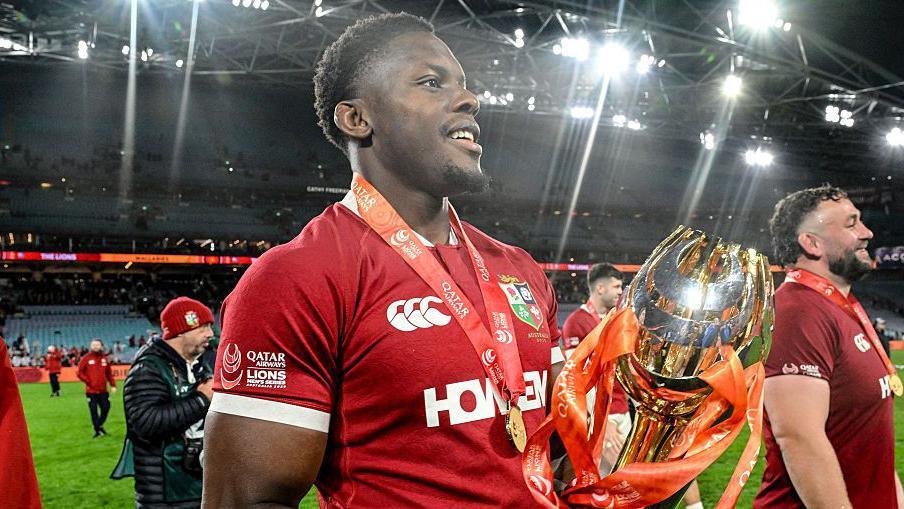In a recent commentary on the British and Irish Lions’ tour, Head Coach Andy Farrell expressed his profound pride despite the team’s bittersweet outcome in the final Test against Australia. Though the Lions were disappointed to lose the last match, details of the series win highlight a commendable journey that has attracted both admiration and critical analysis. The Lions failed to achieve a coveted 3-0 whitewash, which would have been a historical feat not accomplished since their 1927 expedition in Argentina.
During this series, held in Australia, the Lions demonstrated grit and skill, which was reflected in their earlier performances leading to a series win. However, the final match, marred by adverse weather conditions, saw the Wallabies take control, resulting in a 22-12 victory for the home team. This match marked an end to the Lions’ hopes of maintaining their perfect track record on Australian soil, a record that not even the 1974 squad could replicate as they went unbeaten.
“It’s normal to feel frustrated after a loss, especially since we aimed to win every game,” said Farrell, who remains open to the possibility of continuing his coaching role. He added, “Even though they might need a drink or two to drown the sorrows, every member of the team should feel extremely proud of what we have achieved on this tour.” His comments hinted at the importance of reflection, stating that while the immediate emotions could be raw, the team’s legacy and unity are paramount, saying, “The togetherness has been a delightful aspect, and the quality of rugby we showcased has created lasting memories.”
The Lions secured their first series win since their 2013 tour to Australia, yet the desire for a 3-0 outcome was palpable throughout, reflecting a mixture of ambition and reality. Interestingly, the Wallabies showcased resilience and resolved to improve after a shaky start; they were the first Australian side in history not to make it past the group stage in the 2023 World Cup. This realization perhaps further intensified the competitive spirit among the players as they fought hard for each point in the series.
Particular highlight moments for the Lions included the stellar play of Hugo Keenan, whose decisive last-minute try during the second Test at the iconic Melbourne Cricket Ground secured a series victory. In their analysis, experts have noted that the Wallabies’ slow start in the initial Test could be attributed to limited preparation, as they had only played one warm-up game in advance. Former Lion Andy Nicol remarked that the Australian Rugby Union’s approach to pre-series readiness may have impeded their early performance, stating, “The real preparation for the Lions doesn’t happen overnight; it’s a culmination of extensive planning.”
Through thorough preparation and strategic gameplay adjustments, the Wallabies revamped their efforts, leading to a more competitive stance in the remaining tests. Farrell reiterated that Australia is a formidable opponent, stating, “They have special athletes and remarkable players; exciting developments await for Australian Rugby in the near future.”
Despite moments of contention, such as the controversial try by Keenan in the Melbourne match, Joe Schmidt, the Lions’ coach, emphasized his unwillingness to dwell on the past, accepting that his team lost the initial stages of the series. Schmidt asserted, “We lost the first half of the series but won the second half; the growth we experienced during this series is significant.”
In conclusion, while the Lions may leave Australia with mixed emotions, their legacy as a team that has demonstrated resilience, pride, and competitive spirit remains intact. The journey, despite its setbacks, is one of unity and commendable achievements reflective of the potential that lies ahead for both the Lions and the Wallabies. The highlights from this series will be discussed for years to come within the sphere of rugby union, as they paint a complex picture of competition, commitment, and what it means to wear the Lions’ emblem.












